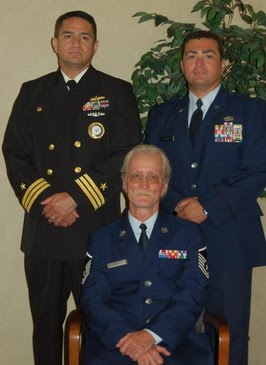and forgive us our trespasses,
as we forgive those who trespass against us.
as we forgive those who trespass against us.
Is there such a thing as an unforgivable trespass? I've been mulling this over for a few days, at least, more like a week. Truth be told, the subject is a recurring question and has been for quite a while.
An old friend called me recently. I inquired about a mutual acquaintance during the course of our conversation; my friend told me that he hadn't spoken to this person in years and, frankly, doubted if he would ever speak to them again. It seems there was a serious betrayal of confidence and a line was crossed that, in my friend's eyes, was simply unforgivable. I listened to his tale sympathetically, and I understood what he was saying.
I'm not a religious man, yet I respect that religion has codified the moral values we hold to be correct and accept as "the rules" for our interaction with fellow human beings. Thus the excerpt from The Lord's Prayer, above. I could have just as easily quoted the Golden Rule. When one truly doesn't know, or understand, what course of action is appropriate in a certain situation it is helpful to turn to The Word for guidance.
While it's easy to acknowledge the correctness, or lack of same, in our everyday actions, living up to The Rules, in practice, can be very difficult. Forgiveness isn't easy when your core values have been violated with malice and forethought, and that was my friend's point. His closing argument was "some things in life are simply unforgivable."
I've spent a lot of time wondering about that. I believe he may be right.




.jpg)




I think we are to forgive anything - if (and it is a big if)the offending party has repented and asked for forgiveness. How can you forgive someone if they have not asked for forgiveness or changed? Of course, anger, bitterness, hatred,malice toward the offender are all wrong. As long as you can put those bad feelings aside, you are not wrong in unforgiveness.
ReplyDeleteI don't agree with the previous comment. I forgive the actions of my three year old routinely and I know she has no real remorse. She cannot fathom it at this point in her life. There are people in our world that, despite their age, and partially due to their circumstances, don't know what it is to trust or love other people. These people are few and thankfully far between, but they exist. Forgiveness, IMHO, is a choice. It's personal and based on your values.
ReplyDeleteForgive me (grin!), Sam, but it seems you're somewhat in agreement with BB. You say forgiveness is a choice, and I agree. But BB has a very valid point when it comes to interactions with adults, not children, when she says forgiveness begins when the offended party is asked for forgiveness by the offender.
ReplyDeleteI was purposefully vague in my description of the conversation I had with my friend: I maintain, and want to retain, close relationships with both parties described in my illustration; it is conceivable that both read this blog. But I will add this: my friend confronted the offender, explained he was both disappointed and angry at the deception and asked for an explanation. The offender responded with rationalizations and excuses, with no remorse or request for forgiveness. He thereby assumed, rightfully so, IMHO, that the relationship wasn't worth maintaining. I will further admit that, after hearing this tale, my opinion of the offending party dropped a couple of notches, but not enough to end my relationship with them. I'm just a little wiser and will be on my guard in future dealings with this person.
Thanks to BOTH of you for your comments!
Now, after all that, I will firm up my opinion on the subject and cease being wishy-washy: some things in life are, indeed, unforgivable.
I've always had an issue "Letting things go", that being said I'll clarify my point by saying forgiveness comes from within and it's only the person doing the forgiving that can DECIDE to grant forgiveness. That person's threshold for granting forgiveness is entirely up to them. They alone will determine if the person committing the offense warrants forgiveness. Their decission may or may not require the offender to ask for it. I really think asking for forgiveness is independent of forgiveness itself. It just may make it easier to justify (rationalize.)
ReplyDelete